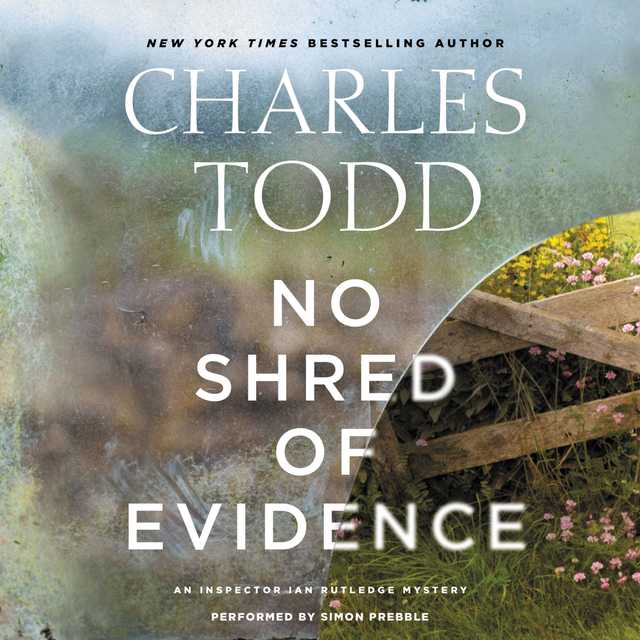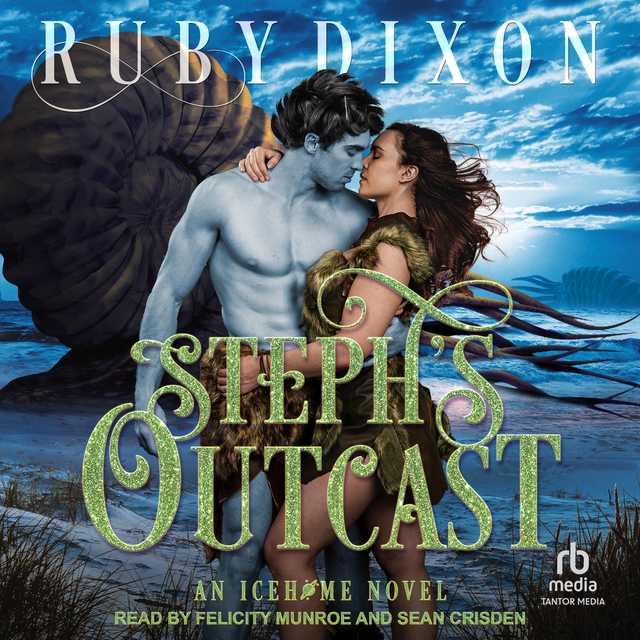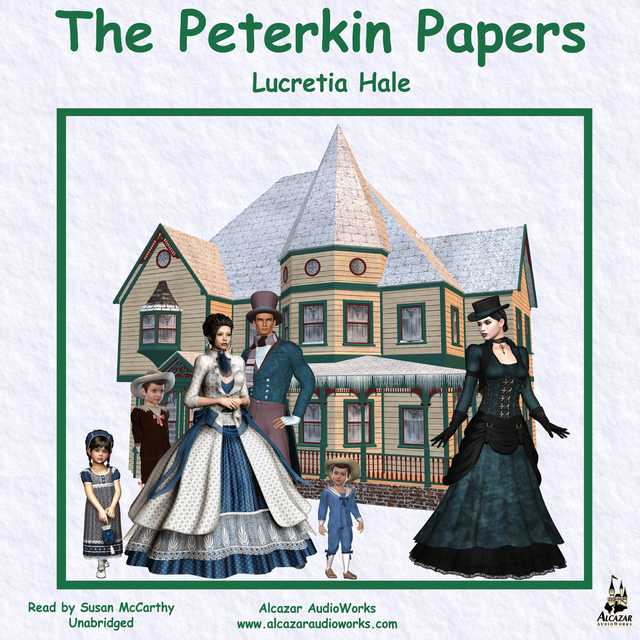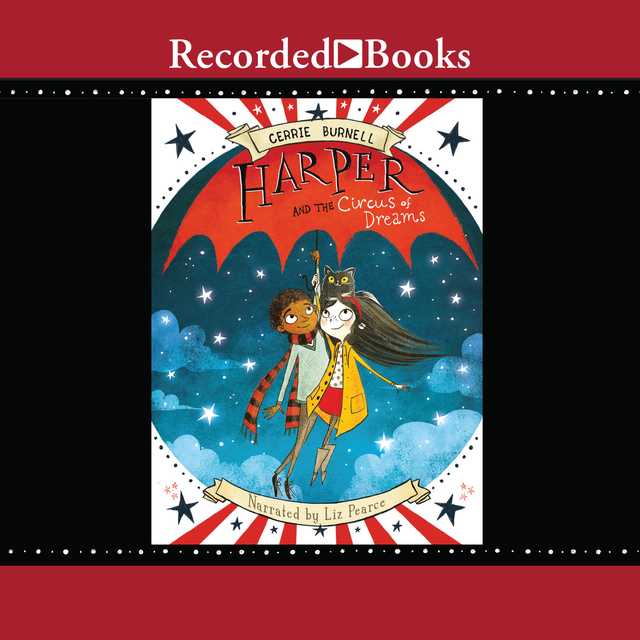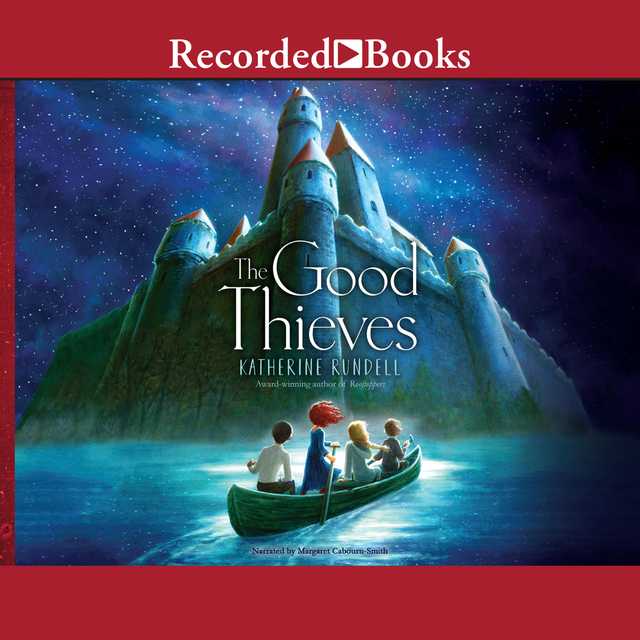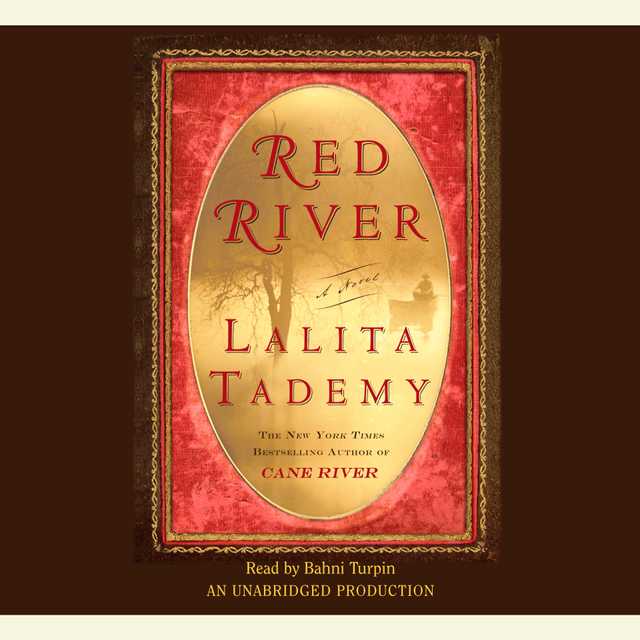No Shred of Evidence Audiobook Summary
In this absorbing new entry in the acclaimed New York Times bestselling series, Scotland Yard’s Ian Rutledge is caught up in a twisted web of vengeance and murder.
On the north coast of Cornwall, an apparent act of mercy is repaid by an arrest for murder. Four young women have been accused of the crime. A shocked father calls in a favor at the Home Office. Scotland Yard is asked to review the case.
However, Inspector Ian Rutledge is not the first Inspector to reach the village. Following in the shoes of a dead man, he is told the case is all but closed. Even as it takes an unexpected personal turn, Rutledge will require all his skill to deal with the incensed families of the accused, the grieving parents of the victim, and local police eager to see these four women sent to the infamous Bodmin Gaol. Then why hasn’t the killing stopped?
With no shred of evidence to clear the accused, Rutledge must plunge deep into the darkest secrets of a wild, beautiful and dangerous place if he is to find a killer who may–or may not–hold the key to their fate.
Other Top Audiobooks
No Shred of Evidence Audiobook Narrator
Simon Prebble is the narrator of No Shred of Evidence audiobook that was written by Charles Todd
Simon Prebble has worked extensively on British and American television as both actor and narrator.
About the Author(s) of No Shred of Evidence
Charles Todd is the author of No Shred of Evidence
More From the Same
- Author : Charles Todd
- An Unwilling Accomplice
- The Murder Stone
- Racing the Devil
- The Shattered Tree
- A Cruel Deception
- Publisher : HarperAudio
- Abraham
- American Gods [TV Tie-In]
- Dead Ringer
- House of Sand and Fog
- Prey
No Shred of Evidence Full Details
| Narrator | Simon Prebble |
| Length | 11 hours 8 minutes |
| Author | Charles Todd |
| Category | |
| Publisher | HarperAudio |
| Release date | February 16, 2016 |
| ISBN | 9780062444561 |
Subjects
The publisher of the No Shred of Evidence is HarperAudio. includes the following subjects: The BISAC Subject Code is Fiction, Historical
Additional info
The publisher of the No Shred of Evidence is HarperAudio. The imprint is HarperAudio. It is supplied by HarperAudio. The ISBN-13 is 9780062444561.
Global Availability
This book is only available in the United States.
Goodreads Reviews
Magdalena aka A Bookaholic Swede
July 05, 2019
NO SHRED OF EVIDENCE is book 18 in the Inspector Ian Rutledge series. I have only previously read the first book in this series, but I had no problem getting into this book. There are some mentioning of events from previous books, but I don't think one needs to read previous books to keep up with what's going on in NO SHRED OF EVIDENCE.READ THE REST OF THE REVIEW OVER AT FRESH FICTION!
Kathy
April 03, 2016
Eighteenth in the Inspector Ian Rutledge historical mystery series and revolving around an inspector suffering from PTSD. This story takes place in Cornwall in the fall of 1920.My TakeTodd jams us up in a hard twist right from the start. Four girls enjoying a last row on the river until they try to rescue a drowning man and encounter a lying witness.I gotta say, from the start I did not like Victoria. What a selfish little snob! Her whole attitude about a man in trouble on the water was so cold. It was mean of Todd to leave us wondering for so long as to what really happened on that rowboat. She and Trevose would deserve each other.I do have some quibbles. I don't understand what purpose was served by Todd going on about Ian's past cases and his past women. Why wouldn't the police have immediately had the boat raised? I'm not sure how Major Gordon is Kate's father if Kate is Jean's cousin and Jean is the major's daughter per events in A Fine Summer's Day , 17. I don't appreciate the "cousin" not trying to do something to stop what's stalking her what with the evidence he's leaving behind. And how is she supporting herself?It's a different world then. A class system that restricted friendships. One that treated the upper classes quite differently from the rest. Easy to see, as technically the four girls are under arrest, but their parents wield enough clout that they arrange for the girls to be held in Grenville's custody under house arrest. The restrictions placed on women; thank god for women's lib.Then again our world is no different today from then. The people of 1920 revile George for his appearance, after what he suffered, fighting for his country. We forget so quickly what our soldiers suffer to protect us. What is with people?When you think that if everyone had simply told Rutledge the whole truth when he asked for it…how many lives would have been saved. With the trouble he's caused, and he has the gall to ask "What's an honest man to do?" As for Victoria's "confession". WTF? How could she actually think she could get away with lying? As for the Saunderses. Jesus. I understand the grief they're suffering, so why not do what you can to help the police??? Why paint lies?There wasn't much of Hamish in this. Is Rutledge coming to terms with his guilt?It's a series of nasty twists that have bound up this investigation. Red herrings. A misguided thirst for vengeance. Lies. The Story Inspector Barrington was the first Scotland Yard detective sent to Cornwall to investigate the murderous drowning of Harry Saunders. But that heart attack of the inspector's got in the way. Rutledge is the second string, sent with Markham's ill-wishes, to find it was a rescue that turns to murder for four young women. One is the woman with whom Rutledge is falling in love. Who faces prison.Luckily their fathers are men with influence and manage to pull in Scotland Yard when the local constabulary prefer to believe the worst and want the case closed. Now.Unluckily, the ladies' fathers are arrogant men who don't see why the rules should apply to them.The Characters Inspector Ian Rutledge is with Scotland Yard. Corporal Hamish MacLeod is the Scottish ghost haunting Ian.Scotland YardSergeant Gibson is a marvel with his information network. Chief Superintendent Markham is Ian's boss. Inspector Barrington is the first man sent to Padstow.Heyl, CornwallInspector Carstairs is investigating a murder in an alley.Padstow, CornwallConstable Beddoes and Constable Pendennis (he was lied to) are based in Padstow.Harry Saunders is the son of a banker and spent the war agitating for the Americans to step in and help. He loved sailing and had a small dinghy, the Sea Lion, for rowing out to his yacht. Mr. and Mrs. Saunders have no excuse for their statements in spite of their grief. Walter Poltruan and Sandy Wade were Harry's friends.Bradford Trevose, a farmer, saw the incident. Mrs. Bronwyn Penwith is his housekeeper and had been his mother's housekeeper before that. Paul Trevose was the brother who went away to be a footman.David Toup is the vicar with secrets at St. Marina. Mrs. Par is his housekeeper. Mrs. Daniels is the woman who will nurse him. Mr. Daniels will spend the nights at the vicarage to protect them both. The vicar seems to have had a "cousin" visiting him last summer, Frances Bingham.Mr. Penhale owns the Pilot, a pub in the village. Dr. Carrick is the local physician. Henry Kelsey owns the boat salvage yard. Frank Dunbar lets the cottages by the river. A Terlew lad found the beaten body; his family lives at Half Acre Farm. Joseph Hays owns the inn.Padstow Place is……the home of the Grenvilles. Victoria is the daughter of the house. Stephen, Elaine's fiancé, is the brother and heir who died in the war. Mr. Grenville is the local magistrate. Mrs. Grenville has her own secrets that cause Trevose to hate the family more. The friends who are visiting include Kate Gordon, Elaine St. Ives is a local neighbor, and Sara Langley.Major Gordon, who had been Jean's father in A Fine Summer's Day is now Kate's father. Corporal Dixon is his driver. George St. Ives is Elaine's brother returned from the war, badly damaged, and refuses to see anyone.Fowey, Cornwall, is……home to the Fowey Hotel. Tolworthy is the manager. Maisy was the maid who was assigned Miss Haverford's room. Margaret Eleanor Avery Haverford is a very secretive woman and had been a guest.Boscastle, Cornwall, is……near Wadebridge. The sisters, Ronnie and Patricia, are the sheltering friends. William is Alexandra Worth's ex-husband. Dr. Learner is the local physician.Dr. Fleming was the psychiatrist Ian worked with, who told him he'd have to learn to live with the voice or go mad. Mr. and Mrs. Wingate live in London.The Cover and Title The cover is soft with its hazy background of the river and a sharp focus in the lower right corner, peeling back as it were, of stile and field.The title is a mockery, for there are scraps, but not enough, no proof, No Shred of Evidence.
Judy
February 21, 2016
This is a wonderful place for new readers to the Inspector Rutledge series to begin their journey with Ian and the not-so-often present Hamish. The Charles Todd writing team did a thorough job of allowing new readers to understand the background for Rutledge, his service in World War I, his ex-fiancé Jean Gordon, and the specter of Hamish McLeod which haunts Ian day and night. I was glad to see Hamish playing a smaller role in the story because that meant that Rutledge had a chance to proceed with this investigation without being so overwhelmed by what he had suffered through during the war. Yes, it is still there, but the depression isn't so all-consuming this time and as a reader I can hope for better mental health for this character in the days to come.Four young women were having an idle paddle on the river when they saw someone waving at them and trying to get their attention. One of the women wanted to ignore him because she thought he just wanted to flirt with them. When it became obvious he was in serious trouble the women tried to rescue him from the water. A witness on shore managed to swim to the boat, helped get the drowning man into the boat, but then accused all four women of trying to murder the man. When Rutledge arrives from London to investigate for Scotland Yard he finds that one of the women is Kate Gordon, the cousin of Jean Gordon the woman he was engaged to marry in1914. Rutledge had vowed never to return to Cornwall because of all the tragedy he associates with it. Now he's about to have to relive the past as well as deal with this case.I loved the way the authors changed up the plotting of this case and moved it away from being the standard plot of a mystery novel. This one had tangles of story lines which kept intersecting and causing confusion as to what was happening in the case Rutledge had been sent down to investigate. Unknown to anyone involved in the death of the man in the boat, Harry Saunders, other factors were taking place in the background which took skillful handling by the authors to keep camouflaged while the general investigation was carried out. I also enjoyed watching the dilemma Rutledge was faced with in trying to separate out whom among the four women might have had intent to injure Harry Saunders. All kinds of social pressures were brought about because of the levels of society represented by those involved and in 1920 those societal levels still played a huge part in how suspects were dealt with, but the great war had gone a long way toward beginning to level those differences so Scotland Yard inspectors had a very narrow line to tread.I thought this was an exciting novel to read from the standpoint of watching the Charles Todd team go in unexpected directions. It worked wonderfully for me and I thoroughly enjoyed it.
Larry
March 14, 2016
The Ian Rutledge books make up a superior series. The impact of World War I on English society is always apparent within the individual books in the series. The challenge of hunting murderers in a pre-CSI world is always interesting. The description of Rutledge's personal challenges, deeply rooted in his wartime experience, are frequently moving. I look forward to each book eagerly. Having said all that, I have issues with "No Shred of Evidence" that won't lower its 4-star rating, but explain why it's no a 5-star book. The description of these issues must be preceded by a Spoiler Alert.• The crime that Rutledge is sent to Cornwall to investigate sets up well. Four young women who are boating go to the rescue of another boater, a young man known to two of them, at least, whose boat appears to be sinking. When their efforts prove to be a physical challenge, a farmer dives into the river and swims to their assistance. The rescued boater is in a coma, however, and the farmer accuses the young women of attempted murder. Enter Rutledge. So far, so good.•The author(s) argues from the beginning that the farmer's word counts for more than the collective testimony of the four young women, apparently because the accused would automatically lie if guilty. What happened to the assumption that the English system assumes innocence and requires the hard proof of guilt? Whatever the nature of rural life in England in the 1920s, however insular Cornwall might have been compared to London, the authorial assumption that eight hundred years of English law don't apply in rural Cornwall seems absurd. To make the point even more strongly, the four young women are from the privileged class, served in volunteer posts in the war, and one is the daughter of the largest landowner as well as the chief magistrate of the district. If anything, they would have gotten off without much of an inquest. Why does everyone assume that they are in line for hanging in the absence of eye-witness testimony to the contrary? Granted, the assumption makes Rutledge's efforts more fraught, but it seems an artificially contrived assumption.•There are two overlapping (maybe, maybe not) crimes under consideration. One is a product of the farmer's charges and the recovered man's ultimate death. The other revolves about a mysterious young woman whose presence in the town seems the focus of a dangerous person whose identity, like hers, is not clear. This second crime nexus is introduced effectively and developed well enough until suddenly rushed to a melodramatic conclusion. There is a scene when Rutledge realizes that he is under observation by a malevolent presence that is quite effective, until Rutledge allows the stalker to move around the area without attempting to stalk him. (The stalker uses the boat that had sunk and been raised, and apparently repaired--unless it's the boat used by the women--and rows back and forth across the river. The boat isn't placed under observation (Rutledge could have used the local constable, a bit of a dunce, to do that, or staked it out himself.) And why doesn't anyone recognize the presence of the stalker as he moves around at night? Given that he is physically fit, unlike the other possible midnight walker, would make it easy to tell them apart. The use of a costume (once) seems pretty thin stuff as a distraction. And the many references to the Cornish belief in spirits that go bump in the night by people from the area doesn't begin to explain why people don't notice a stranger at night.•The stalker could have been fleshed out better, and Rutledge could have stalked him. See "Watcher in the Shadows" or "Kill Claudio" for examples of what a master writer can do with that kind of situation.•If I were Inspector Ian Rutledge, I wouldn't leave my revolver in a trunk under my bed in London, not when I spend my life tracking homicidal maniacs. He's had to use his service revolver in at least eight or nine other cases.
Tom
July 24, 2017
An amazing novel! Ian Rutledge is a wonderful man. Charles Todd is a wonderful writer. I bond with their characters. I love the scenery. I'd like to do a Todd tour of Ian's sites!Todd keeps your interest high. Danger is present. I like that they've softened Hamish somewhat. Now I hope Ian catches up with Kate. He deserves to be happy!It feels like my Kindle is empty without a Todd title (in spite of the 12 books I have on it now).I just can't say how much I admire Ian and Charles Todd! Wunderbar!!
Gail
February 18, 2016
There’s very little peace for the Todd hero Scotland Yard detective Ian Rutledge but always a compelling story for readers. Rutledge is perspicacious but troubled by his experiences in the Great War. He suffers from shell shock and guilt due to the killing of a young Scot soldier, Hamish MacLeod, who refused an order. The voice of Hamish is with Rutledge to this day, speaking to him whether invited or not. No Shred Of Evidence takes place in the Cornish countryside, which is beautifully described. During the autumn of 1920 in the town of Padstow Victoria Grenville is entertaining friends - a neighbor Elaine St. Ives and two other young women from London, one of whom is Kate Gordon, known to Rutledge because she is related to his former fiancee. It is a beautiful day and rowing on the River Camel seems like an excellent idea until they see Harry Saunders in a sinking boat. Neither of the women is an accomplished sailor and their attempts to save him would have come to naught had it not been for the help of a farmer, Bradford Trevose, who dove into the water and saved Saunders. Surprisingly Trevose swears to the police that the women were trying to murder Saunders. The village is shocked by this accusation and the father of one of the women calls Scotland Yard to investigate, so an inspector is sent to Padstow. But soon after his arrival he is found dead of an apparent heart attack. Rutledge is dispatched to continue the investigation. He is, of course, surprised to find that one of the young women accused is Kate Gordon and distressed to find that the former inspector’s notes have vanished. Pressure on Rutledge mounts as Saunders lies in a coma and his family demands justice. Yet the women continue to claim their innocence saying they were only trying to save the man. Why would Trevose accuse the women if it were not so? How can Rutledge rectify the conflicting testimonies? And then another violent crime occurs and Rutledge finds himself in grave danger. One more absorbing mystery from the Todd team that also explores the effects of war not only on the men who served but also on the women whose loved ones never returned.
Andree
September 30, 2020
Decided to come back to this series, after an earlier break. 3.5 stars, but rounding up because I mostly liked it.I mostly liked this one. The setting is interesting, as is central conceit of the mystery - four women try to save a drowning man, but are accused of attempted murder by a witness after he ends up dying. Rutledge has to get to the bottom of things. I liked that this didn't feel quite so much like the absolute, entire world has it in for Rutledge all the time. I liked that Hamish wasn't quite as prevalent, in favour of actual living characters. I would be interested in the introduction of Rutledge's former fiance's cousin, Kate Gordon, but I know not to invest in any way. At best she'll appear in two other books before a) also moving to another country, never to be heard of again, b) dying, or c) in some other way exiting stage left. Because Rutledge can have no friends or allies.What I didn't like (and caused me to almost dock 2 stars as opposed to 1) is the resolution of the mystery. (view spoiler)[It's absurd. It's ridiculously extreme (a man whose wife has left him kills anyone who basically comes in contact with her - seriously, we're talking half a dozen murders prior to this one and no one's done anything), and it comes completely out of left field and seems to have nothing to do with anything that's been happening prior in the small town, and all of which was more interesting. (hide spoiler)]But I did quite like it, except for the last three or so chapters.
Susan
February 27, 2017
Inspector Ian Rutledge is sent to Cornwall to investigate charges against four young women who claim they were trying to rescue a drowning man. One witness however tells a different story- the women were trying to murder the man. With a scarcity of evidence , Rutledge is forced to delve into some long hidden grudges and secret motives. In the course of his investigation, Ian is forced to confront some old demons and relive memories of the horrors experienced during his service in WWI. A good solid British mystery.
Lynn
June 14, 2016
Charles Todd is a mother/son team. They write two different series of British detective stories both set during and shortly after WWI. The main character in this book is Scotland Yard detective Ian Rutledge. He's back from the war and suffering PTSD. He manages to solve the murder of a young man who was supposedly killed by 4 young women. The characters are really good and the plot is good too. You can start anywhere in this series, but I'm glad I started at the beginning.
Alonzo
February 27, 2022
Four wealthy young ladies, including an acquaintance of Scotland Yard detective Ian Rutledge, try to rescue a young man whose boat is sinking in the middle of the river. Because no good deed goes unpunished, our heroines find themselves accused of his murder. Of course it’s Detective Rutledge, his motorcar, and the voices in his head to the rescue. The result is an absorbing 1920 police procedural featuring lovely scenery, helpful vicars, crabby landed gentry, and (as always) the lingering scars of WWI.Fans of the series know what to expect. New readers can grab this one and not get lost. As always, the writing and scene setting is exceptional. It obscures this book’s great flaw — the idea that the incarceration of the four upper class ladies would actually happen on the basis of the word of a low class farmer.
Cassandra
July 14, 2022
Pretty good. I liked that someone from Rutledge’s old life made an appearance. The mystery was good-
Jill
February 26, 2016
Charles Todd is a pen name used by the American authors Caroline and Charles Todd. As Charles Todd, they have written eighteen books set in post-World War I England and featuring Scotland Yard Inspector Ian Rutledge. Rutledge is secretly suffering from shell shock (inter alia) from the Battle of the Somme, a horrific battle in which the British had 419,654 casualties, with 131,000 dead and an untold number victims of Post Traumatic Stress Disorder (known as "shell shock" at the time of WWI). Inspector Rutledge’s shell shock has an interesting twist, however. He lives with the constant taunting ghostly presence of Hamish MacLeod, a young Scots soldier Rutledge was forced to execute for refusing an order. Rutledge still carries with him the guilt for that act, and thus MacLeod stays in his head, making commentary and asides about the cases on which Rutledge works. (Rutledge has often thought that, as appealing as it may seem to kill himself, it would mean killing MacLeod yet a second time, which would be unacceptable.)In this story, which takes place in 1920, the inspector is called to Cornwall at the request of the locals for a Scotland Yard investigation. A man drowned, and four young women who were out boating have been accused of killing him.To Rutledge’s surprise, he discovers that he knows one of the young women - Kate Gordon, who was the cousin of his pre-war fiancee Jean. Rutledge had released Jean from that bond after the war, when she saw the “shell of a man who had returned from France.” Rutledge is quite certain Kate, if not all the girls, are innocent, but as he finds, there is “not a shred of evidence” about the case.Nevertheless, he perseveres, and eventually is able to figure out what happened that day on the water. Perhaps the more important question is, will there be any further developments between Rutledge and Kate? And if so, how will Hamish fit into the picture?Discussion: This is an unusual detective procedural for several reasons. One is that, rather than the usual detective foibles, such as alcoholism, Rutledge has a unique condition – PTSD – that is manifested by the constant companionship of a ghost as his “partner.” The second is that this is clearly a historical procedural. The Rutledge stories are all set in post-World War I England, and the authors have taken great pains to portray the physical and emotional devastation wrought by that war. The mystery in the book, although not uninteresting, seems very secondary to that goal. In particular, the authors exercise skill and empathy in depicting the psychological effects of the fighting. Rutledge’s mental struggles are rather heartbreaking, and one finds oneself glad he has someone to understand him, even if it’s only a ghost.Evaluation: This series provides an entertaining way to learn about the devastation wreaked on England and France from World War I. Although this is the eighteenth in the Inspector Rutledge series, I had no trouble picking up who was who and what was going on. Rating: 3.5/5
Kathleen (Kat)
January 04, 2016
How can you solve an apparent murder without a shred of evidence and the only person who can say for sure what really happens remains in a coma? That is just the case that Inspector Ian Rutledge is called upon to attempt to solve when the original investigator on the case dies of a heart attack and taking all the notes on the case with him. He simply failed to transcribe them before his untimely death and now Rutledge needs to begin piecing the clues of what happened as if he was starting over again. But now time has elapsed and it will simply make the case load that much harder to solve. When four young women come to the aid of a man they know late at night who was going to drown when his boat began to sink, the women realize that he simply weighs too much in the water for them to bring on board without compromising their own safety of tipping over into the cold dark waters. A man dives in and swims to help but when he is able to pull the man into the boat, he believes the women were attempting to kill him and not save him as they claim. The fact that there is blood on the oar of their boat and no sign on his doesn't look good for the women when they are immediately taken into custody when they are able to get the boat back to shore. Things get more complicated when Rutledge interviews one of the woman and realizes that she is the cousin of the woman he was going to marry. Conflict on interest or something simply to make the mystery all that more intriguing? The one thing I have come to appreciate about Charles Todd's Inspector Ian Rutledge series, is that if you are a fan of murder mysteries or a good Sherlock Holmes mystery, you will definitely want to pick this one up and begin the journey. Ian Rutledge is a marked man having survived the Great War and now works at Scotland Yard but not without his flaws. He suffers from PTSD and talks to a former soldier known as Hamish in his thoughts. It keeps the story line moving and as always carries the reader through to the end trying to solve the case before Rutledge does. Just because you have the premise of the story laid out before you, like any good mystery, not everything is as it appears and an investigation must take place to figure out just what is really going on and why. I received No Shred of Evidence by Charles Todd compliments of William Morrow, a division of Harper Collins Publishers for my honest review. I did not receive any monetary compensation aside from a free copy of this book in exchange for my personal and honest review of this novel. This is the 18th book in the Inspector Ian Rutledge series and have enjoyed every single one I have read. They remain a favorite because they are set historically in London's past and provide the reader a glimpse of not only a great mystery to solve but also some history along the way. For me, this one rates a 4 out of 5 in my opinion and look forward to many many more in the future.
Judy
December 03, 2016
I enjoy these books by the mother/son writing team know as Charles Todd. They write about Bess Crawford, WWI Nurse, and Ian Rutledge WWI veteran who is an inspector with Scotland Yard. He is also suffering from PTSD and has an ongoing conversation with the voice of Hamish, one of his men he lost in the war and has yet to forgive himself for Hamish's death. Although in this story, Ian seems to be making some good progress towards putting his life back together and is hearing Hamish less often in his head.The murder/mystery in this book is set again in Cornwall. Four affluent young ladies have been accused of trying to murder a young man, they say was drowning. Harry Saunders, the banker's son, is spotted by the young women floundering in the river as his boat seems to be sinking. They go to his aide and are accused by a local farmer who says 'he saw the whole thing' of trying to kill poor Harry. When Harry later dies, the ladies are accused of murder. The father of one of the accused asks for the Yard to come and investigate because these aren't the sort of girls one would suspect of murdering anyone.The first inspector suffers a heart attack and dies and Ian Rutledge is then sent to see where the truth lies in this tangled tale. During the investigation we learn a bit more about Ian's past. One of the women is a cousin of his former fiance. The authors do a great job of weaving facts and red herrings together to keep the reader guessing until the end as to who is the killer.These are well researched books and are most enjoyable; I always enjoy my time spent with Inspector Rutledge.
Deb
May 31, 2016
Rutledge is sent to Cornwall to investigate the death of a young man. It's alleged that 4 young women attempted to drown him, and Rutledge is stymied in his investigation by a complete lack of evidence. During the course of his investigation, Rutledge discovers the existence of a mysterious young woman who had spent time in the small village but has since left. She may be connected to the murder, but no one claims to know her. Rutledge also becomes re-acquainted with Kate Gordon, cousin of his former fiancee Jeanne, when he's shocked to discover she's one of the four woman accused of killing the young man.Rutledge is much less troubled by his past, and by the voice of Hamish, and he seems much more able to cope with the stress of being reminded of his history. It seems like a natural development. It was also refreshing to have him supported by his new boss instead of having to deal with his former supervisor.
Frequently asked questions
Listening to audiobooks not only easy, it is also very convenient. You can listen to audiobooks on almost every device. From your laptop to your smart phone or even a smart speaker like Apple HomePod or even Alexa. Here’s how you can get started listening to audiobooks.
- 1. Download your favorite audiobook app such as Speechify.
- 2. Sign up for an account.
- 3. Browse the library for the best audiobooks and select the first one for free
- 4. Download the audiobook file to your device
- 5. Open the Speechify audiobook app and select the audiobook you want to listen to.
- 6. Adjust the playback speed and other settings to your preference.
- 7. Press play and enjoy!
While you can listen to the bestsellers on almost any device, and preferences may vary, generally smart phones are offer the most convenience factor. You could be working out, grocery shopping, or even watching your dog in the dog park on a Saturday morning.
However, most audiobook apps work across multiple devices so you can pick up that riveting new Stephen King book you started at the dog park, back on your laptop when you get back home.
Speechify is one of the best apps for audiobooks. The pricing structure is the most competitive in the market and the app is easy to use. It features the best sellers and award winning authors. Listen to your favorite books or discover new ones and listen to real voice actors read to you. Getting started is easy, the first book is free.
Research showcasing the brain health benefits of reading on a regular basis is wide-ranging and undeniable. However, research comparing the benefits of reading vs listening is much more sparse. According to professor of psychology and author Dr. Kristen Willeumier, though, there is good reason to believe that the reading experience provided by audiobooks offers many of the same brain benefits as reading a physical book.
Audiobooks are recordings of books that are read aloud by a professional voice actor. The recordings are typically available for purchase and download in digital formats such as MP3, WMA, or AAC. They can also be streamed from online services like Speechify, Audible, AppleBooks, or Spotify.
You simply download the app onto your smart phone, create your account, and in Speechify, you can choose your first book, from our vast library of best-sellers and classics, to read for free.
Audiobooks, like real books can add up over time. Here’s where you can listen to audiobooks for free. Speechify let’s you read your first best seller for free. Apart from that, we have a vast selection of free audiobooks that you can enjoy. Get the same rich experience no matter if the book was free or not.
It depends. Yes, there are free audiobooks and paid audiobooks. Speechify offers a blend of both!
It varies. The easiest way depends on a few things. The app and service you use, which device, and platform. Speechify is the easiest way to listen to audiobooks. Downloading the app is quick. It is not a large app and does not eat up space on your iPhone or Android device.
Listening to audiobooks on your smart phone, with Speechify, is the easiest way to listen to audiobooks.

